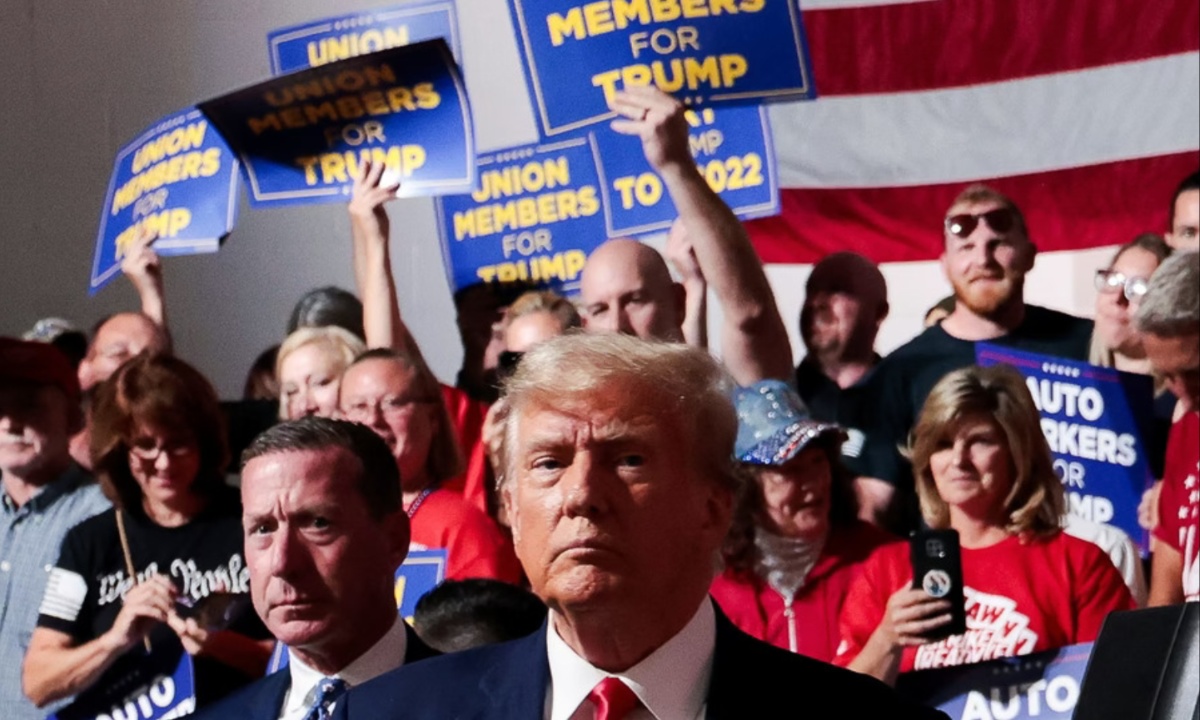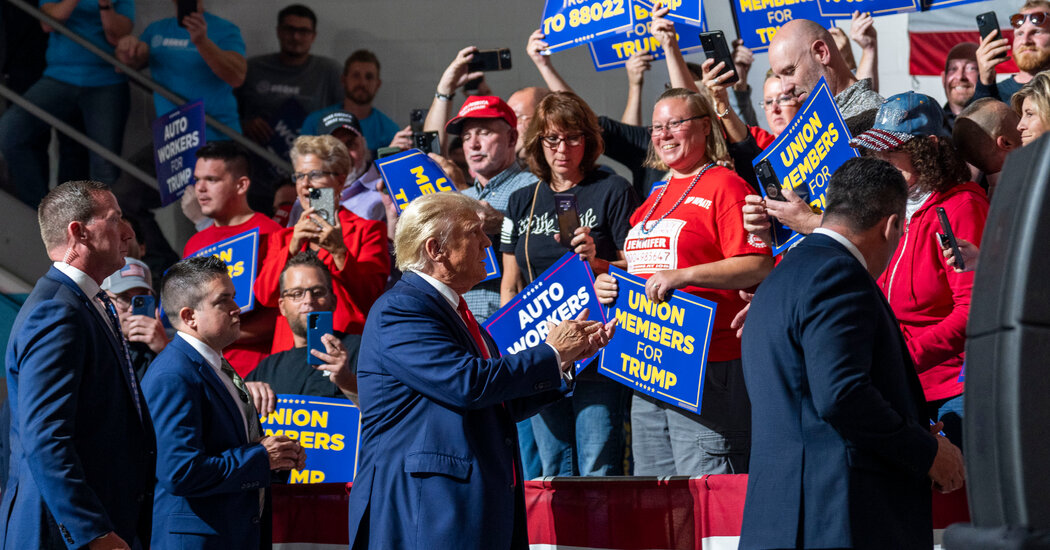As Michigan, a crucial swing state prepares for the upcoming November election, experts warn that Democrats might jeopardize their chances due to ineffective messaging about the transition to electric vehicles (EVs).
Donald Trump has used this issue to his advantage, claiming that ending the EV mandate on his first day in office would save the U.S. auto industry from collapse. His stance has resonated with many United Auto Workers (UAW) members, significantly eroding support for Joe Biden among union voters in Michigan.
Trump’s criticism of EVs, despite his positive relationship with Tesla’s Elon Musk, has tapped into existing skepticism among auto workers. He argues that EVs require less labor compared to traditional vehicles, a point that has gained traction among UAW members and contributed to Biden’s declining support. This has been particularly damaging in Michigan, where union votes are pivotal in swing state elections.
Research suggests that Trump’s claim about EVs requiring less labor is misleading. Multiple studies, including those by Carnegie Mellon University and the University of Michigan, indicate that producing EVs can actually be more labor-intensive than manufacturing gasoline vehicles.

Democrats Risk Losing Michigan as Trump’s Anti-EV Rhetoric Resonates with Union Voters
The complexity of EV powertrains and the assembly process, which involves handling heavy battery packs and advanced materials, contributes to the increased labor hours required.
The Biden-Harris campaign has failed to effectively counter these claims, leaving them vulnerable in a state where union support is crucial. Despite evidence showing that EV production does not necessarily result in fewer jobs, the Biden administration has not sufficiently communicated this to the public. This gap in messaging has allowed Trump’s narrative to dominate, impacting voter perceptions in key regions like Michigan.
While Trump’s rhetoric has been influential, the reality is that EV production may create as many or more jobs than traditional automotive manufacturing. General Motors and other companies have stated that the workforce needed for EV production is comparable to that for gasoline vehicles. Additionally, the expansion of EV-related industries, such as battery production, is underway, with significant investments in Michigan.
Challenges remain, however. Battery production is heavily reliant on materials sourced from abroad, and many new battery plants are not unionized or offer lower wages compared to traditional auto manufacturing jobs. This disparity has fueled concerns among workers about the future of their employment, contributing to skepticism about the benefits of EVs.
Despite these issues, there are positive developments. The UAW has made strides in negotiating for better conditions in battery plants, and recent legislation like the Chips and Science Act aims to boost domestic production of critical EV components. As the industry evolves, there is potential for workers to transition into new roles, although the benefits of these changes are not yet fully realized.
To improve their position, Democrats need to shift their messaging on EVs. Rather than framing the transition as an environmental issue, which can be polarizing, they should emphasize the job creation potential of the EV sector. Effective communication about how EVs can support and expand employment opportunities could help rebuild support among union members and voters in key swing states like Michigan.











































